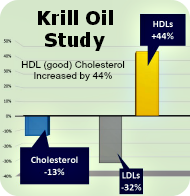How to Lower Triglycerides Naturally.
How to Lower Triglycerides. This big word can
create a big problem!
Who would have thought that learning how to reduce your triglycerides could lower the risk of having a heart attack by up to 600%?
This is what researchers at the University of Munster GERMANY have discovered.
Their study of how to reduce triglyceride levels indicated they were an independent risk for heart disease. It involved 19,698 men and women, aged 16 to 65 years, who were enrolled between 1979 and 1985. After 8 years of follow-up the researchers concluded that elevated triglyceride levels are a significant and independent risk factor for a heart attack or sudden cardiac death.
They concluded that high triglyceride levels alone or in combination with high LDL levels and low HDL levels can be deadly.
Whenever triglycerides are increased, HDL cholesterol decreases. A combination of high triglyceride levels with a high LDL level and a LDL:HDL ratio greater than 5 was found to increase risk of heart attack a whopping 600%!
Improving Good HDL Cholesterol is the Key to
How to Lower Triglycerides.
Although your doctor and the drug companies focus on lowering LDL cholesterol with a statin drug such as Lipitor or Crestor a much more important way to lower heart attack risk is to raise good HDL cholesterol levels.
HDL cholesterol acts like a miniature hydraulic vacuum cleaner, streaming through your arteries scooping up the heart-stopping LDL cholesterol, and carrying it back to your liver.
Other studies have found that an 88 mg/dL increase in triglyceride levels alone, increased the risk of cardiovascular disease in men by 30% and by 75% in women.
So, why haven't our doctors paid much attention to how to lower triglycerides until recently? Good question.
Dr. Oz recently presented the following question to his television audience.
"Do you know your triglycerides number?"
The righly popular heart surgeon went on to say that "high triglycerides dramatically increased the risk of heart disease, especially for women."
So, just what are triglycerides...and how can we lower them?
Triglycerides, also known as TGs, are a group of fatty compounds that circulate in the bloodstream and are stored in the fat tissue. The medical term for high TGs is hypertriglyceridemia. (I'm sure you wanted to know this.)
I like Dr. Oz's example of what a triglyceride is:
"If a sugar molecule marries a fat molocule and they have a baby it is a triglyceride."
Although measurement of triglycerides is part of a standard blood lipid profile, until recently they were not recognized by many physicians as being a significant heart attack risk factor.
One reason is that it has been hard to pin down the specific effect of triglycerides as most people with high triglycerides also have;
- high LDL cholesterol (the bad stuff)
- low HDL cholesterol (the good guys)
- high blood pressure
- and/or obesity
How to Lower Triglycerides With Foods
Following is a list of foods that lower triglycerides. These foods also have a number of additonal heart health benefits.
- How to lower triglycerides with Olive oil. Olive oil is an excellent oil because the extra virgin is cold pressed, and not subjected to the extreme heat that most oils are subjected to during processing.
- How to lower triglycerides with Grapes. Although dark skinned grapes have a higher level of antioxidants all types of grapes are beneficial. You have no doubt heard that red wine has a beneficial effect on heart disease but it is not the fermentation that provides the benefit.
Grape juice is also high in antioxidants, but the highest levels of antioxidants are derived from resveratrol.
Beans contain magical nutrients to lower triglycerides and are high fiber super foods.
James Anderson, M.D., at the University of Kentucky, regularly prescribes a cup of navy or pinto beans to his patients each day.
I personally follow this prescription to the letter. My wife cooks up a large batch in the crock-pot every couple of weeks, scoops them in to small containers and sticks them in the freezer.
Is Eating Fish How to Lower Triglycerides?
One of the recommendations to lower triglycerides is to eat plenty of fish but getting the right kind of fish is not as easy at used to be...unless you are fortunate enough to live near a mountain stream or have access to wild Alaskan salmon.
There's a serious problem with most of the fish you find in the stores and restaurants. It has been raised on a farm, not the wild environment that creates the omega 3's you need for heart and brain health.
Fish raised on a farm are fed a diet of fish flakes made from corn, cereal grains and other additives. This unnatural diet of Omega 6 food causes the salmon's omega-3 levels to plummet.
And that's just one of the many biological transformations they go through.
Salmon and other fish raised in captivity are dramatically changed by the experience; the fish farmers have to inject them with an orange-colored dye to make their flesh look like real salmon.
Dr. Andrew Wiel recently warned in his blog, "Farm-raised tilapia is one of the most commonly consumed fish in America, yet it has very low levels of beneficial omega-3 fats compared to its content of omega-6 fatty acids.
"Omega-6's are essential, but the American diet typically includes far too much of this kind of fat. An overabundance of dietary omega-6 is pro-inflammatory, and inflammation is a key contributor to many chronic health conditions."
Please don't pass the sugar if you want lower triglycerides.
Sugar is a triple whammy. It not only increases triglycerides but is actually toxic to the cells and over time causes insulin resistance leading to diabetes.
Exercise and weight loss lowers TGs as does giving up smoking. (as if you needed another reason)
 Krill Oil...The Super Omega 3 to Lower Triglycerides.
Krill Oil...The Super Omega 3 to Lower Triglycerides.
Krill are shrimp-like invertebrates or crustaceans that are harvested from the icy Antarctic waters of the Southern Ocean.
Highly intelligent great whales, seals, penguins and sea birds depend on krill for their nutritional needs.
These semi-translucent crustaceans congregate in dense masses or swarms that can turn the ocean's surface pink or red.
Krill are one of the most easily renewable food resources available, an excellent nutritional source from an environmental perspective.
In a study reported by Dr. Joseph Mercola, "krill oil also causes your metabolism and genes to improve!"
In summary krill will help lower your triglyceride and cholesterol levels and increase your energy production, whereas fish oil does neither and in fact may even raise your cholesterol level, according to the latest research.
Vital Life Nutritionals Krill Oil is the best source of omega-3 fatty acids for the maintenance of good heart and brain health.
It is harvested from the pristine, crystal clear waters of Antartica and has received the coveted Friend of the Seas certification.
Krill Oil Benefits described on the Dr. Oz Website by Kristin Kirkpatrick, MS, RD, LD
"A 2025 study in the Journal of the American College of Nutrition found that 300mg daily supplementation of krill oil resulted in significant decreases in inflammation and arthritic symptoms in cardiac and arthritis patients.
How to Lower Triglycerides? Click here now to purchase Vital Life Nutritionals Krill Oil from our Heart Supplements Store.
Special limited time offer! Your heart will say thankyou!
Thanks for joining us on the journey to
Vital Heart Health for Life!
How to Lower Triglycerides Resources
- Raise HDL Cholesterol to Improve Triglycerides
- How to Prevent Heart Attacks
- The Cholesterol Myth...it is not the cause of heart attacks.
- Inflammation of the heart is primary cause of heart attacks.
- Heart Attack Prevention
- Oxidation a Key Heart Risk
- Policosanol
- Free Radicals Definition
Clinical Studies - References
- University of Munster GERMANY
- Dr. Andrew Wiel recently warned in his blog that farm-raised tilapia is one of the most commonly consumed fish in America but there are better choices.
- Robert Superko, MD, director of research at Berkeley Heart Lab
- American Heart Association
- American College of Cardiology
- INTERHEART Clinical Trial reported in the Lancet Medical Journal
|
